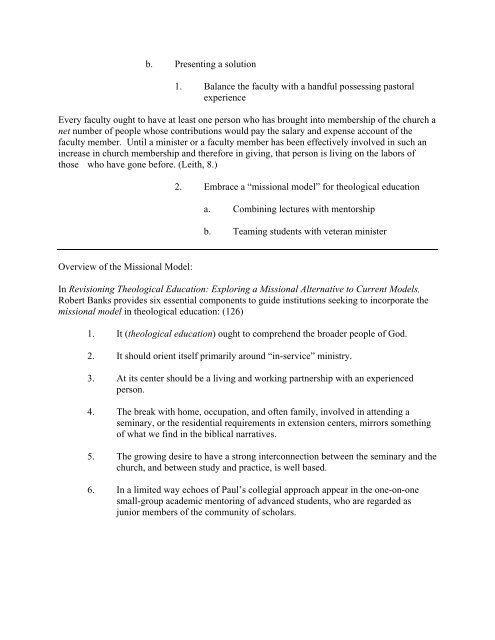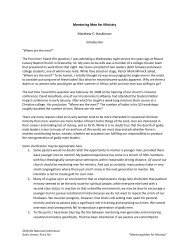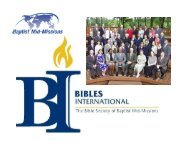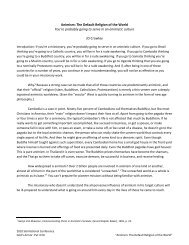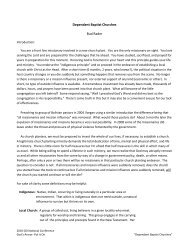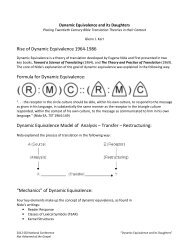Session 1: Why Urban Ministry - Missions Mandate
Session 1: Why Urban Ministry - Missions Mandate
Session 1: Why Urban Ministry - Missions Mandate
Create successful ePaper yourself
Turn your PDF publications into a flip-book with our unique Google optimized e-Paper software.
. Presenting a solution<br />
1. Balance the faculty with a handful possessing pastoral<br />
experience<br />
Every faculty ought to have at least one person who has brought into membership of the church a<br />
net number of people whose contributions would pay the salary and expense account of the<br />
faculty member. Until a minister or a faculty member has been effectively involved in such an<br />
increase in church membership and therefore in giving, that person is living on the labors of<br />
those who have gone before. (Leith, 8.)<br />
Overview of the Missional Model:<br />
2. Embrace a “missional model” for theological education<br />
a. Combining lectures with mentorship<br />
b. Teaming students with veteran minister<br />
In Revisioning Theological Education: Exploring a Missional Alternative to Current Models,<br />
Robert Banks provides six essential components to guide institutions seeking to incorporate the<br />
missional model in theological education: (126)<br />
1. It (theological education) ought to comprehend the broader people of God.<br />
2. It should orient itself primarily around “in-service” ministry.<br />
3. At its center should be a living and working partnership with an experienced<br />
person.<br />
4. The break with home, occupation, and often family, involved in attending a<br />
seminary, or the residential requirements in extension centers, mirrors something<br />
of what we find in the biblical narratives.<br />
5. The growing desire to have a strong interconnection between the seminary and the<br />
church, and between study and practice, is well based.<br />
6. In a limited way echoes of Paul’s collegial approach appear in the one-on-one<br />
small-group academic mentoring of advanced students, who are regarded as<br />
junior members of the community of scholars.


